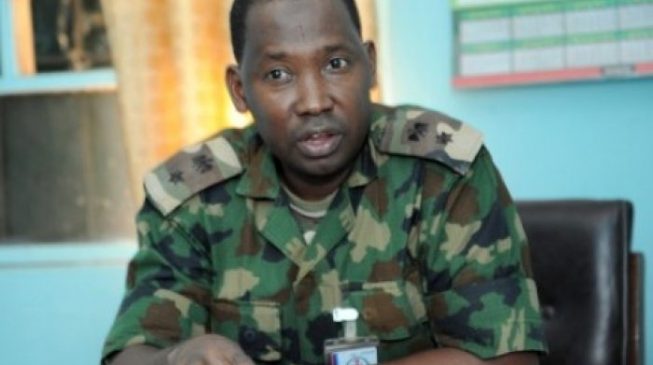The Nigerian Army has extended ongoing exercises Ayem Akpatuma 11, Atilogwu Udo 1 and Crocodile Smile 1V to January 7, 2020; they were scheduled to end on December 23.
The Acting Director, Army Public Relations, Col. Sagir Musa, disclosed this in a statement on Sunday in Abuja.
Musa explained that the extension was due to the tremendous successes recorded by the exercises, especially “Positive Identification’’ in the North East.
He recalled that in the efforts to combat insecurity across the nation, the army commenced the conduct of the exercises in different regions in October.
“All the exercises were scheduled to be conducted concurrently from October 7 to December 23.
“Owing to the tremendous successes recorded in the ongoing Operations/Exercises across the country, especially in the aspect of exercise Positive Identification, the Nigerian army has extended the deadline for the conduct of exercises Ayem Akpatuma II, Atilogwu Udo I and Crocodile Smile IV from December 23 to January 7, 2020.
“The Chief of Army Staff, Lt.-Gen. Tukur Buratai, wishes to reassure the good citizens of our country of the Nigerian army’s unwavering resolve to protect lives and properties of all law abiding citizens.
“He (Buratai) appreciates the tremendous support and understanding of all Nigerians during the conduct of exercises Ayem Akpatuma II, Atilogwu Udo II and Crocodile Smile IV across the country so far.
“He solicits same support as the exercises run through the extension period,” the army spokesman said.
Trending
- Auxiliary: Court admits arms found in Lamidi’s hotel as evidence
- I can’t force lawmakers to attend, Obasa defends session with four members
- We’ve restored Meranda’s security detail, initial withdrawal for audit, says Lagos CP
- Shettima to attend burial of Namibia’s founding President, Nujoma
- FCCPC asks MultiChoice to suspend price hike pending investigation
- FAAC: FG, states, LGs share N1.703t for January
- Azuka: Police take responsibility for escape of two murder suspects
- Oyo launches free health insurance for 10,000 primary school pupils


